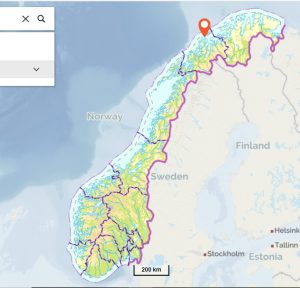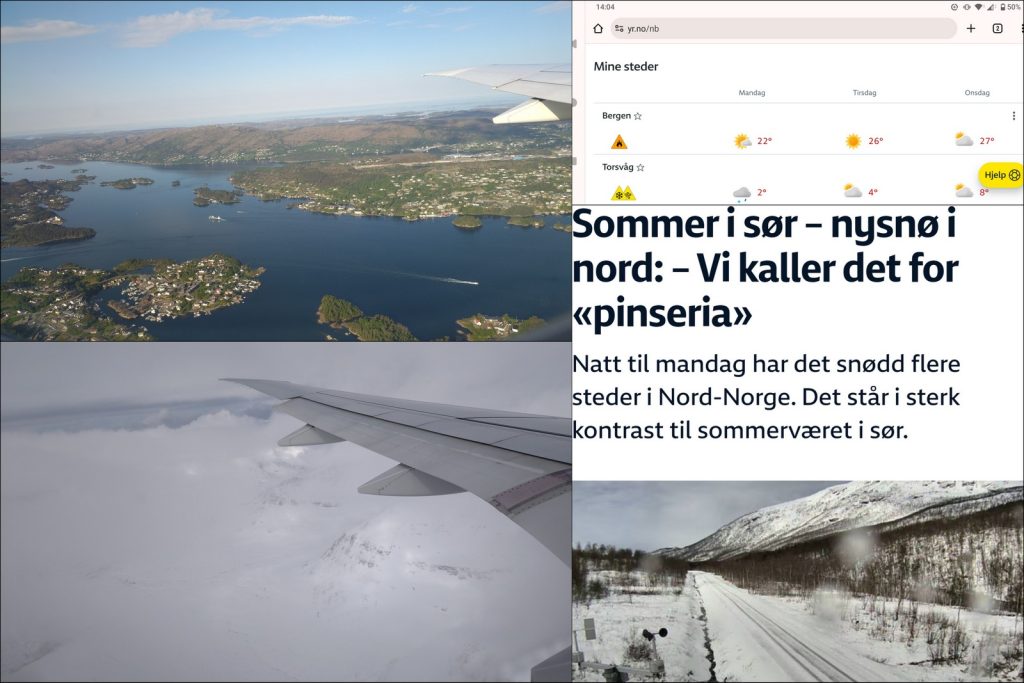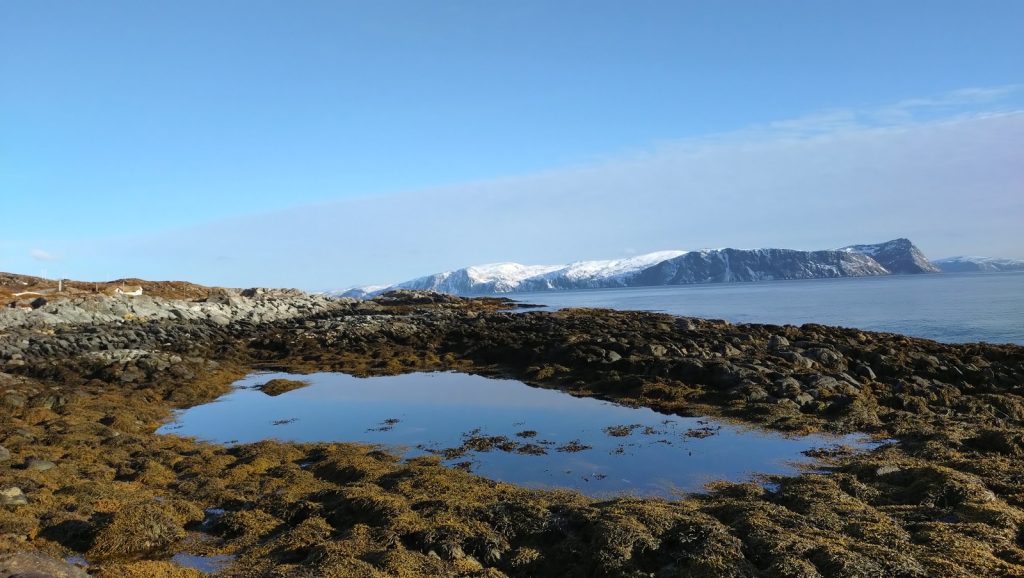During the last week of May, eleven of us in “the marine group” went on fieldwork together, up far north.
Based in Torsvåg (see map), we’ve collected material for several species mapping projects supported by the Norwegian Taxonomy Initiative (Artsprosjektet).
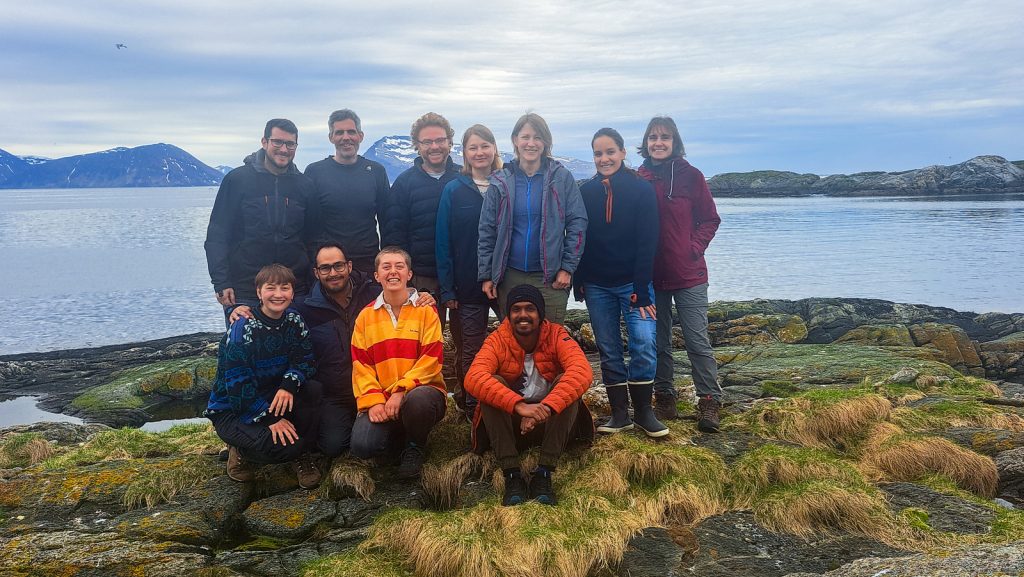
The UMB participants. From back left: Joan, Jon, Tom, Nataliya, Katrine, Cessa, Marta (guest of NOAH). Front from left: Lea, Luis, Eva and Praveen
The fieldwork originated from the collaboration between the projects “Norwegian Marine Fungi” (Teppo Rämä, UiT), “NOAH – Norwegian Arctic Hydrozoans” (Joan J. Soto-Àngel, UMB), and “Polychaetes in the Arctic” (ManDAriN) (Nataliya Budaeva, UMB).
Additionally, the projects “Lower Heterobranchia and Pyramidellidae of Norway,” “Parasites on Jellyfish, Comb Jellies, and Chetognaths” (ParaZoo), “Digitization of Norwegian Bryozoans” (NorDigBryo), and “Marine Amphipods: Diversity, Species Complex, and Molecular Studies” (MADAM) were represented (many of us participate in multiple projects), covering a wide range of organisms.

The light house, and some signs that you may have been invaded by marine biologists (photo: K. Kongshavn)
Weather-wise, the Bergen team had some doubts as we packed our car in nearly 30-degree heat while snow was falling up North. However, it turned out that good weather awaited us! By the time we settled into our accommodations, the spring-winter was over, the sun came out – and didn’t set! An advantage of being in the land of the midnight sun, for sure.
The scenery was breathtaking!
Upon arriving at Torsvåg Lighthouse, Teppo treated us to pancakes and a strategy meeting. Before the evening was over, we had our first samples in the lab, collected at low tide near the lighthouse.
From there, it was a flurry of activity: collecting from tide pools, docks, marinas, kelp forests, and boats. We had one day of suboptimal weather with too much wind for extensive outdoor work, but by then we certainly had enough material to keep us busy indoors.
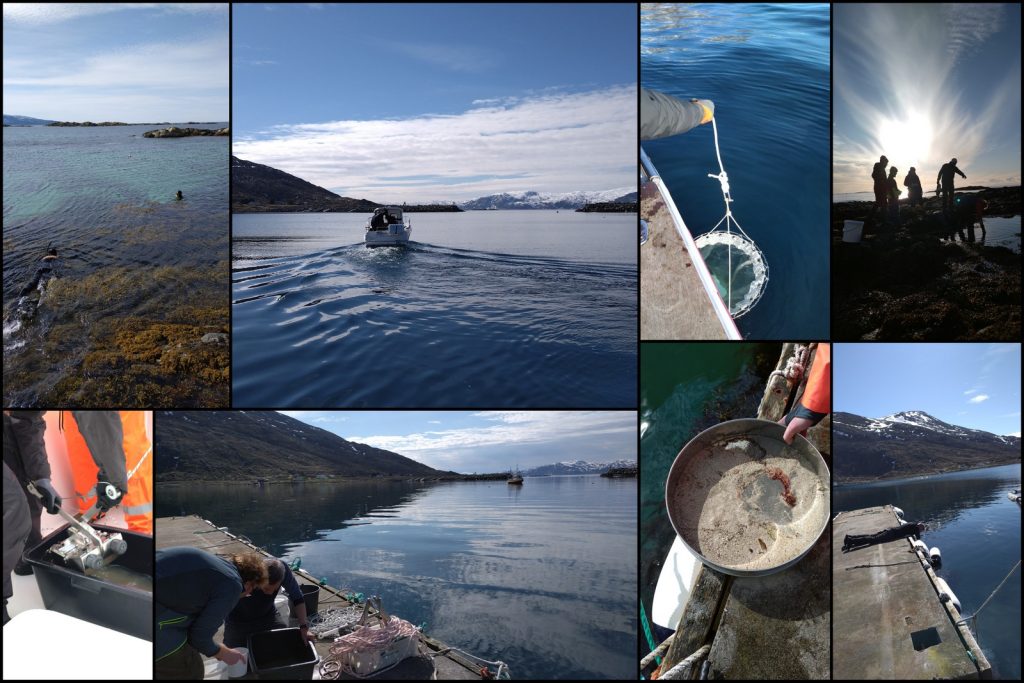
Sampling methods: Snorkelling, from boat, hand pick in the intertidal, using a (small!) grab, sieving and collecting from piers and marinas. Photos: K. Kongshavn
In total, there were 14 of us, spread across the lighthouse and two apartments.
The lab space was set up for fungi in the lighthouse, while the two apartments were home to “team cnidarians & ctenophores” and “team benthos” (polychaetes, snails, bryozoans, and amphipods). Sorting, identification, photography, and documentation took place, with samples migrating between labs as we discovered interesting finds.
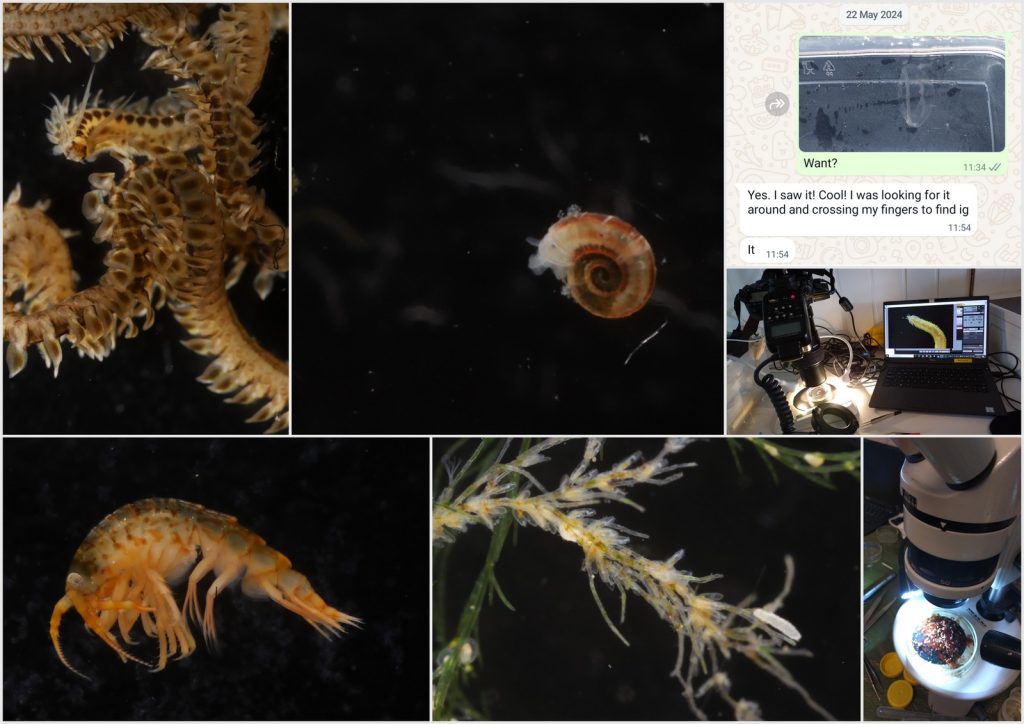
Some of our collected animals, a screenshot from the dealing of samples via WhatsApp, and a sample being sorted. Fotos: K. Kongshavn
We also had a nice visit from the Norwegian Biodiversity Information Centre (Artsdatabanken), who joined us for fieldwork and lab activities. Stay tuned for a news article—we’ll share the link when it’s available.
A big thank you to everyone for their great attitudes, willingness to share knowledge, samples, and boat time, as well as for all the delicious food made and fun memories created!
Keep an eye out for posts from the different projects in the near future!
–Katrine (on behalf of the travelers)

